Overview
The article explores seven experiential marketing strategies that truly engage modern audiences by nurturing emotional connections and building brand loyalty. It illustrates how various brands, such as Warner Bros and Red Bull, employ innovative techniques like user-generated content and high-stakes events to craft memorable experiences that resonate deeply with consumers. These strategies not only drive engagement but also foster a sense of community, ultimately enhancing sales and loyalty.
Introduction
In a world where digital interactions often overshadow the warmth of personal connections, brands encounter a significant challenge: how to engage modern audiences in ways that truly matter. This struggle can lead to feelings of isolation for both consumers and brands alike.
Experiential marketing emerges as a nurturing solution, offering companies the opportunity to craft immersive experiences that resonate deeply with consumers on an emotional level. Yet, as the landscape continues to shift, the question remains: how can brands effectively harness these strategies to cultivate loyalty and foster a sense of community?
This article explores seven transformative experiential marketing strategies designed not only to captivate audiences but also to nurture deeper connections in 2025 and beyond. Together, let’s discover how these approaches can help bridge the gap and create meaningful interactions.
RNO1: Transformative Experiential Marketing Strategies for Modern Brands
In today's fast-paced digital landscape, many companies struggle to forge genuine connections with their audiences. This challenge can leave them feeling isolated and disconnected, as they seek ways to engage consumers meaningfully. RNO1 understands this pain and offers transformative strategies for that prioritize radical digital interactions, seamlessly blending branding with . By utilizing [experiential marketing](https://imagination.com/latest/the-future-of-experiential-marketing-trends-to-watch-in-2025), companies can engage their audiences in ways that truly matter, fostering .
Through the and engaging interactions, RNO1 leverages experiential marketing to empower companies to connect on a more personal level with consumers. This emotional connection not only strengthens loyalty but also boosts customer involvement. It's remarkable to note that companies integrating storytelling into their experiential marketing strategies have seen significant results; for instance, a campaign centered around personal narratives led to a 30% revenue increase. Additionally, the rise of experiential marketing through interactive storytelling via AR and VR is reshaping how companies engage with their audiences, making experiences more memorable and impactful.
As we navigate the competitive landscape of 2025, it’s essential for companies to embrace cutting-edge digital platforms and performance strategies. RNO1 is here to support you on this journey, helping you maintain in a nurturing and understanding way. Together, we can and foster lasting connections.
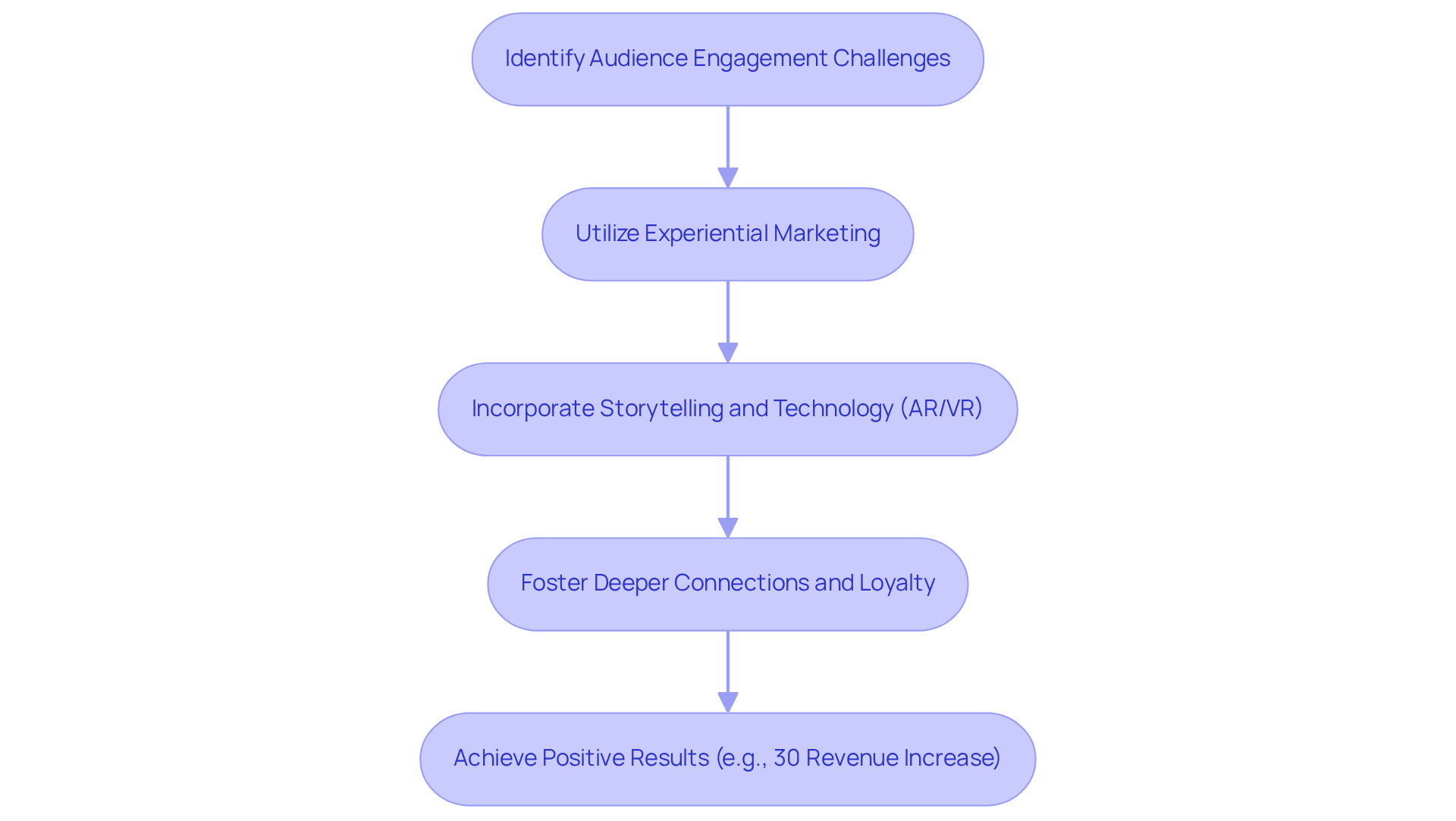
Warner Bros Pictures: Barbie Movie Selfie Generator Engages Fans Creatively
Warner Bros Pictures has introduced a selfie generator for the Barbie movie, allowing fans to create personalized content for social media sharing. This interactive tool not only nurtures creative engagement but also significantly enhances the film's visibility through . By inviting fans to actively participate in the promotional campaign, Warner Bros has transformed viewers into advocates, showcasing the power of in the film industry.
further exemplifies this approach, scaling omnichannel ambassador programs and boosting e-commerce engagement through thoughtfully curated national UGC programs and . It's noteworthy that , and social initiatives incorporating UGC experience a remarkable . This underscores the strength of experiential marketing.
Furthermore, with 90% of consumers expressing that they admire and support, this approach illustrates how UGC can foster trust and involvement, aligning beautifully with .
We invite you to reflect on how these insights can resonate with your experiences and encourage you to explore the in your own journey.
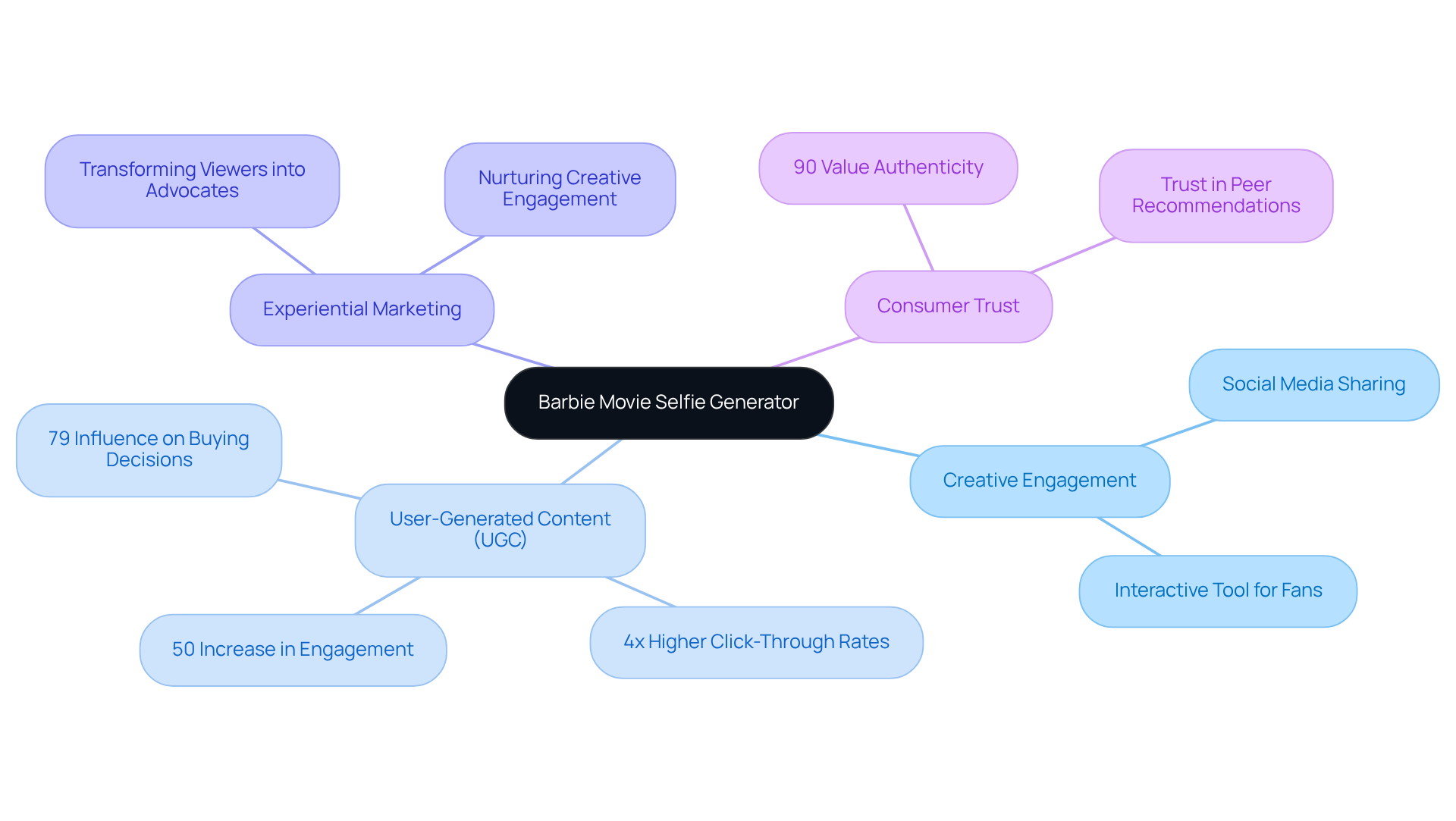
Red Bull: Stratos Campaign Redefines Audience Engagement with Extreme Experiences
Red Bull's Stratos campaign, featuring Felix Baumgartner's record-breaking skydive from the edge of space, highlights a relatable challenge many brands face: . This monumental event transcended mere spectacle; it was a thoughtfully crafted promotional strategy that resonated with millions around the globe.
By aligning their image with extreme sports and adventure, Red Bull not only reinforced its identity but also that deeply connected with its audience. This campaign illustrates how can enhance , as evidenced by:
- 85% of buyers indicating they are more likely to support brands involved in .
- 74% of shoppers feeling more inclined to purchase items after engaging in experiential marketing through branded event promotions, underscoring the effectiveness of this approach.
With experiential marketing achieving a of 38.34%, Red Bull has firmly established itself as a leader in extreme sports, showcasing the power of that forge emotional bonds with consumers.
As we look toward 2025, the evolution of extreme sports marketing strategies promises to offer companies innovative ways to connect with their audiences, fostering a sense of community and shared experience.
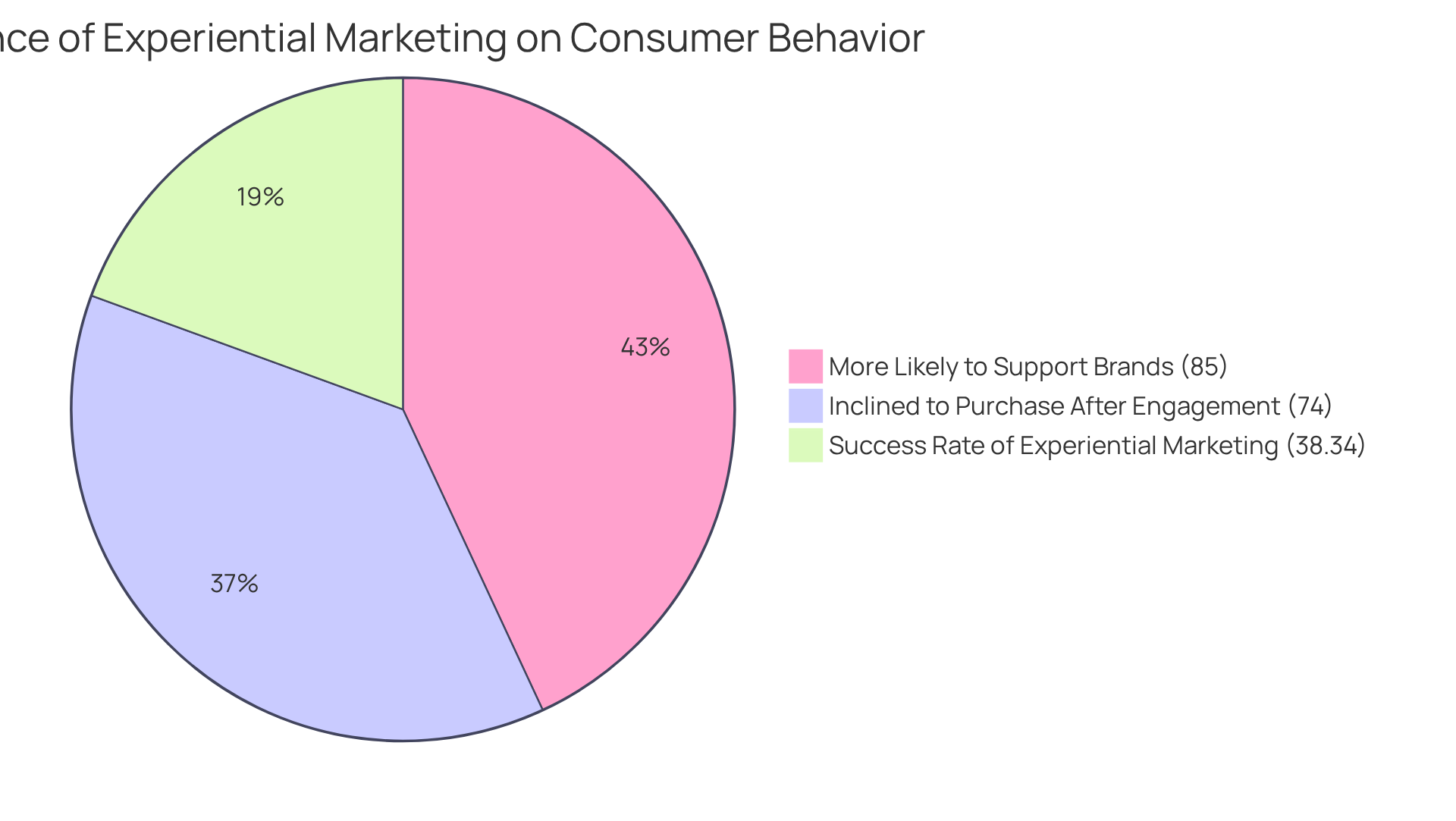
Refinery29: 29Rooms Blends Art and Brand Storytelling for Immersive Experiences
In today's fast-paced world, many people struggle to find in their experiences, especially in the realm of art. This disconnection can leave individuals feeling isolated and unfulfilled, yearning for something more profound. Refinery29's 29Rooms addresses this challenge head-on, offering a groundbreaking that seamlessly blends creativity with . Each room provides a unique experience, inviting visitors to explore various themes and narratives that resonate with their identities on multiple levels.
This innovative approach not only captivates attendees but also fosters a , encouraging that significantly amplifies the organization's reach and impact. By crafting a space where , Refinery29 nurtures contemporary audiences, showcasing the transformative power of in . It’s a heartfelt invitation to connect, reflect, and share—reminding us all of the beauty that arises when we come together through art.
Lean Cuisine: #WeighThis Campaign Challenges Body Image Norms Through Engagement
Lean Cuisine's #WeighThis campaign courageously confronted the troubling standards of body image by inviting women to share their and reshape the notion of 'healthy.' This initiative sparked and nurtured a among participants. By fostering an open dialogue about , Lean Cuisine demonstrated its of its clients. Such an approach not only deepens but also builds trust, illustrating the powerful impact of on consumer relationships.
Alarmingly, 21% of adults have reported feeling shame about their body image due to advertising images, underscoring the need for initiatives like this. As one quote poignantly states, 'Everyone has a right to feel comfortable and confident in their own bodies.' Additionally, with 34% of adults experiencing feelings of sadness or low self-esteem linked to , the importance of cannot be overstated.
This campaign serves as a heartfelt example of how companies can utilize experiential marketing to connect with their audiences in a meaningful way while promoting positive body image and nurturing a supportive community.
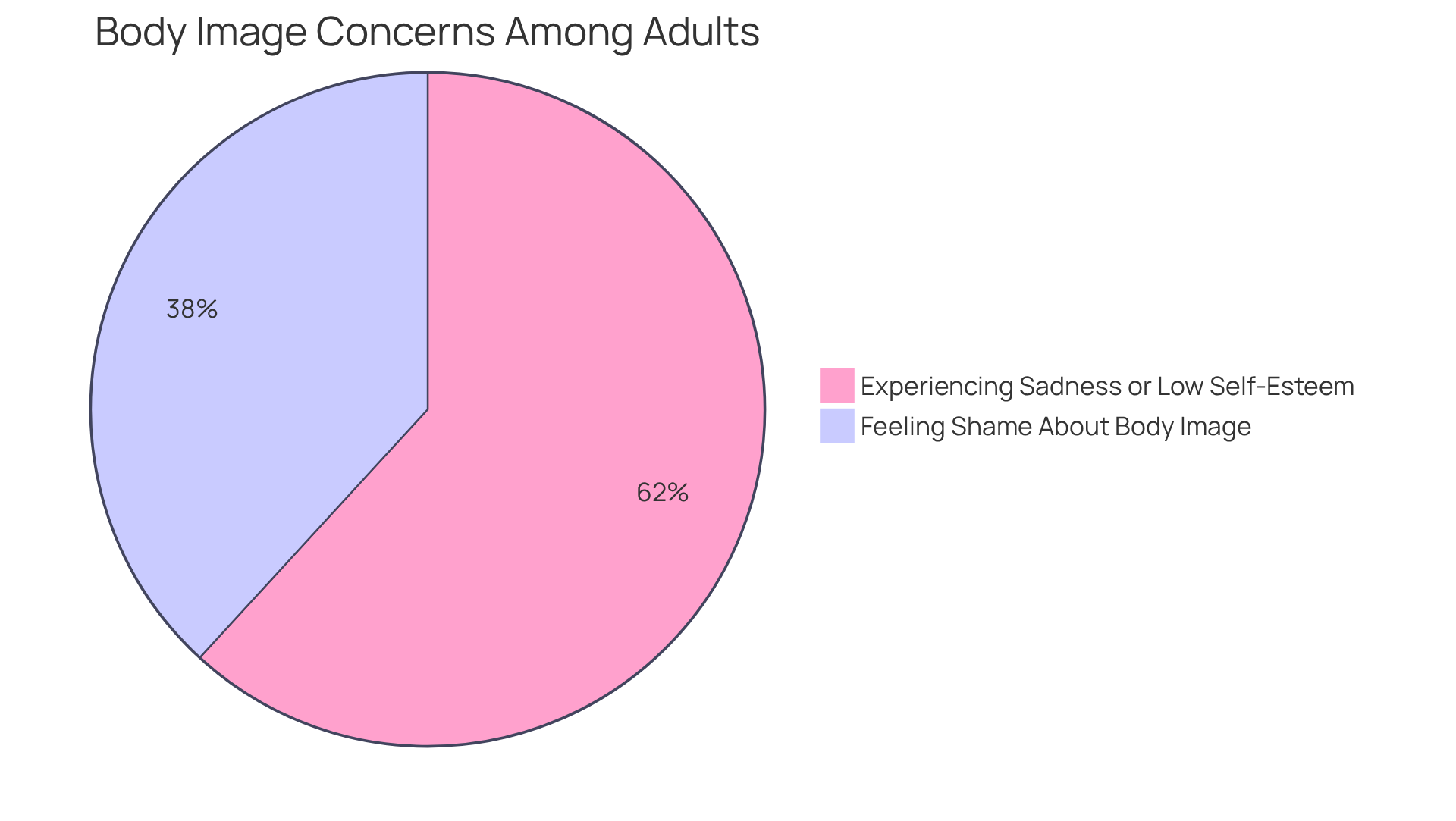
M&M's: Flavor Rooms Offer Interactive Taste Experiences to Consumers
present a wonderful opportunity for individuals to engage in an , where they can explore a delightful array of flavors and craft their own unique blends. This hands-on involvement not only captivates customers but also deepens their emotional connection with the brand.
By inviting customers into the product creation journey, M&M's nurtures a sense of ownership and loyalty, beautifully illustrating how impacts the food industry. It's important to recognize that significantly enhance ; in fact, studies reveal that:
- 82% of individuals are willing to pay more for .
- Companies that prioritize their customers are 60% more profitable than those that do not.
This underscores the of engaging consumers through experiences like M&M's Flavor Rooms. This case serves as a testament to how brands can utilize hyper-customization to build enduring relationships with their audience.
As Bill Gates wisely remarked, 'Every day we're saying, ‘How can we keep this customer happy?’' This guiding philosophy resonates deeply in M&M's approach, highlighting the power and effectiveness of experiential marketing.
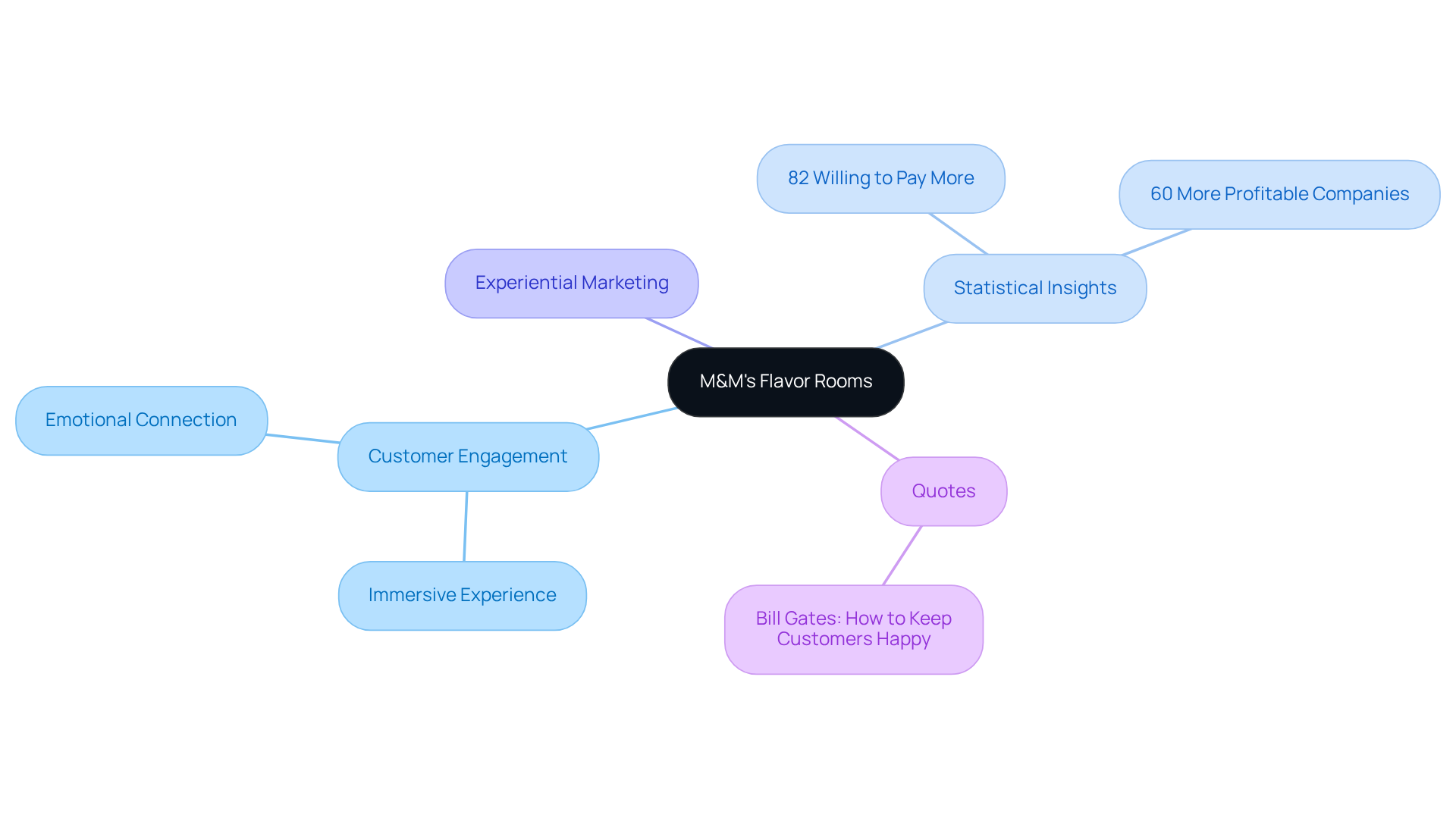
Benefit Cosmetics: 'A Lashtastic Virtual-Media Campaign' Enhances Customer Interaction
Benefit Cosmetics has launched the 'Lashtastic' virtual-media campaign, providing a wonderful opportunity for customers to try on various lash styles through . This interactive experience not only enhances but also allows consumers to visualize products before making a purchase, addressing a common challenge many face.
It's heartening to know that studies reveal:
- 61% of consumers prefer retailers with AR features
- 71% would shop more frequently if they could utilize such technology
Moreover, the global applications of in the cosmetics and beauty markets are projected to grow at a remarkable compound annual growth rate (CAGR) of 25.5% from 2022 to 2027, highlighting the increasing significance of AR in this sector.
By embracing through AR in their marketing strategy, Benefit Cosmetics has successfully captured the attention of a tech-savvy audience, demonstrating the in the beauty world. This approach not only but also fosters a deeper connection between the company and its customers, showcasing the effectiveness of experiential marketing in enhancing .
Furthermore, with the cosmetics industry grappling with a , AR solutions like 'Lashtastic' offer innovative strategies to improve purchasing decisions, addressing the real concerns of consumers. As Omead Sinai notes, AR enables companies to provide highly , contributing to a more sustainable cosmetic industry. This nurturing approach not only reassures customers but also creates a .
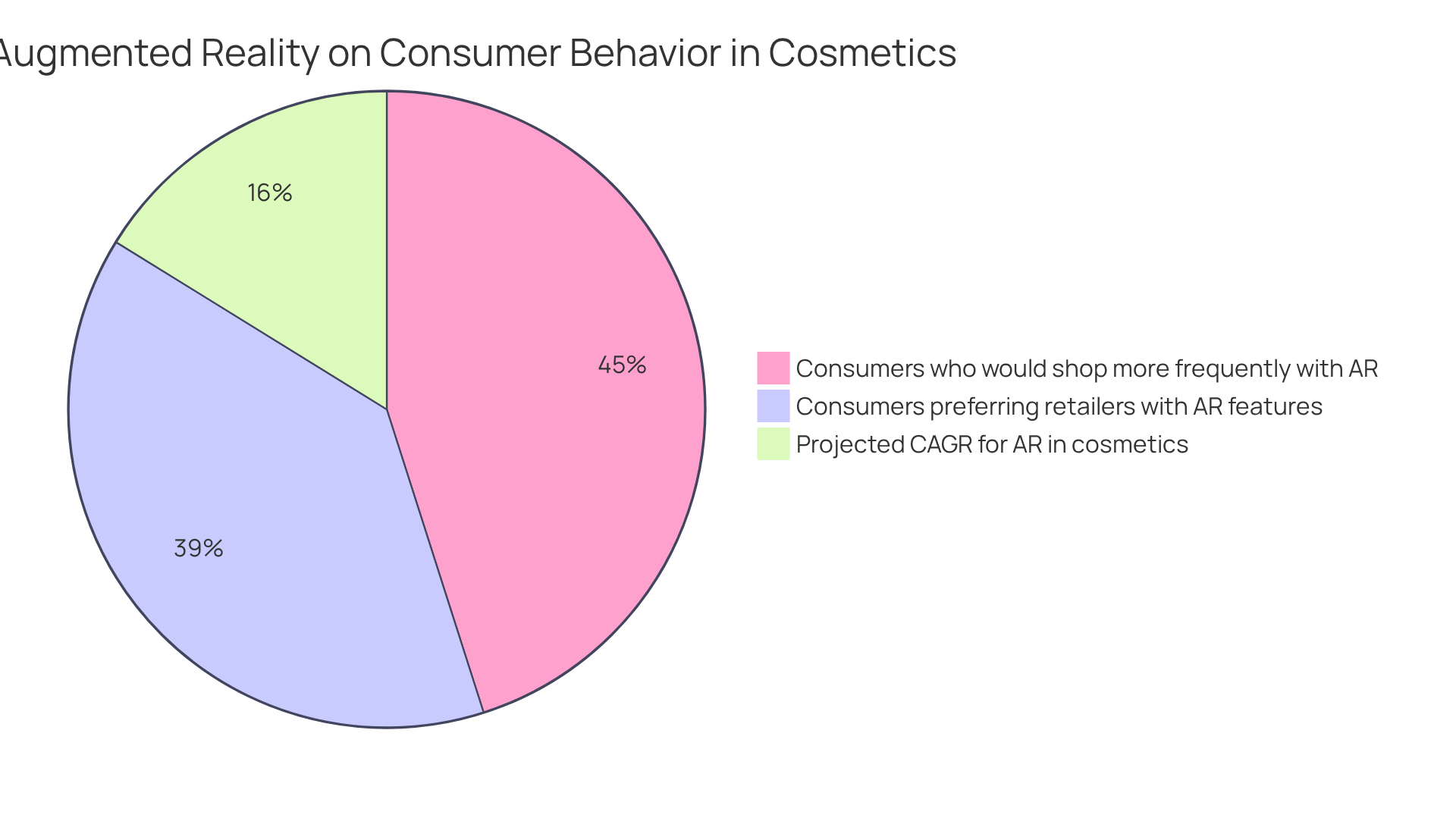
Häagen-Dazs: Wimbledon Collaboration Creates Unique Cultural Brand Experience
Häagen-Dazs faced a challenge that many encounter: how to connect authentically with their audience. This is particularly poignant in today's fast-paced world, where consumers often feel distanced from brands. In response, Häagen-Dazs formed an extraordinary collaboration with Wimbledon, creating a luxurious product interaction that seamlessly merged with the sophistication of this esteemed tennis tournament. This collaboration featured exclusive flavors and engaging on-site activations, allowing attendees to savor while fully immersed in the excitement of the event.
By connecting their image with such a significant cultural moment, Häagen-Dazs not only enhanced its visibility but also nurtured deeper . This initiative illustrates the effectiveness of , where:
- 91% of individuals feel more positive about a product after engaging in an experience, and
- 85% of individuals are more inclined to purchase after attending events.
As luxury labels progressively utilize to improve their promotional strategies, Häagen-Dazs serves as a wonderful example of how can greatly enhance recognition and . As Daniel Ku wisely noted, '91% of consumers believe that engaging in experiential marketing will increase their likelihood of purchasing from the company.' This collaboration not only highlights the power of connection but also encourages other brands to explore similar paths.
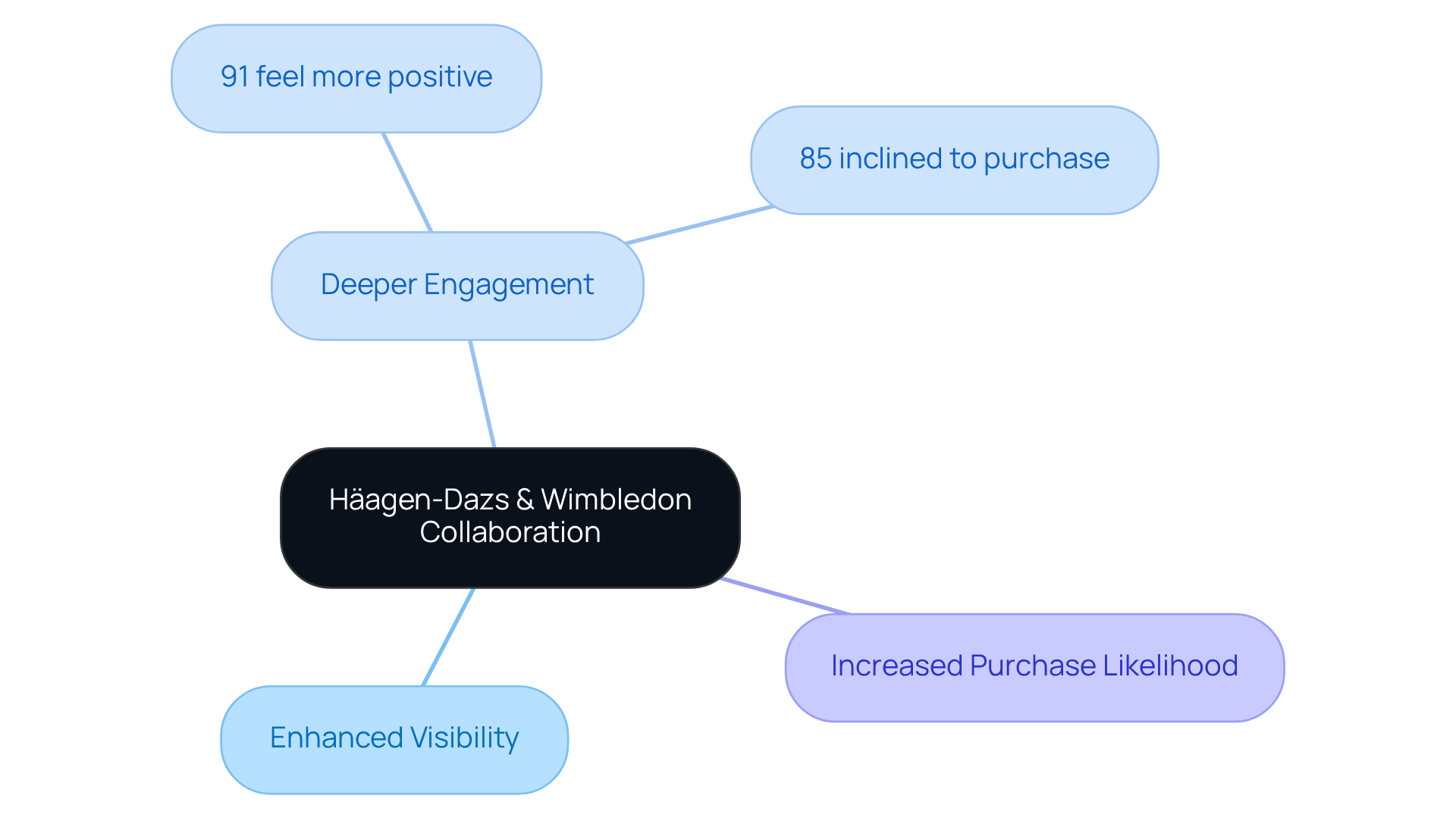
Vans: House of Vans Creates Community-Focused Experiences for Brand Enthusiasts
Vans' House of Vans serves as a vibrant community hub, bringing together enthusiasts through a variety of events, workshops, and activities. This initiative not only strengthens the bond between the organization and its audience but also nurtures a among participants. By establishing a space dedicated to engagement, Vans significantly enhances its identity and fosters loyalty, illustrating the powerful role that plays in building community connections.
Remarkably, 40% of individuals express after participating in such events, highlighting the effectiveness of workshops and in cultivating lasting relationships. As we move into 2025, companies are increasingly prioritizing experiential marketing strategies, and the success of initiatives like House of Vans underscores the importance of creating that resonate with consumers and reinforce loyalty.
By embracing innovative tactics from RNO1's , Vans can further expand its and boost through . This approach not only amplifies community involvement but also encourages brand virality, demonstrating the potential of merging robust ambassador and influencer strategies with experiential marketing.
Moreover, implementing can significantly enhance campaign virality, while targeted luxury funnel messaging can effectively reach e-commerce-focused communities, ensuring that Vans remains at the forefront of consumer engagement.
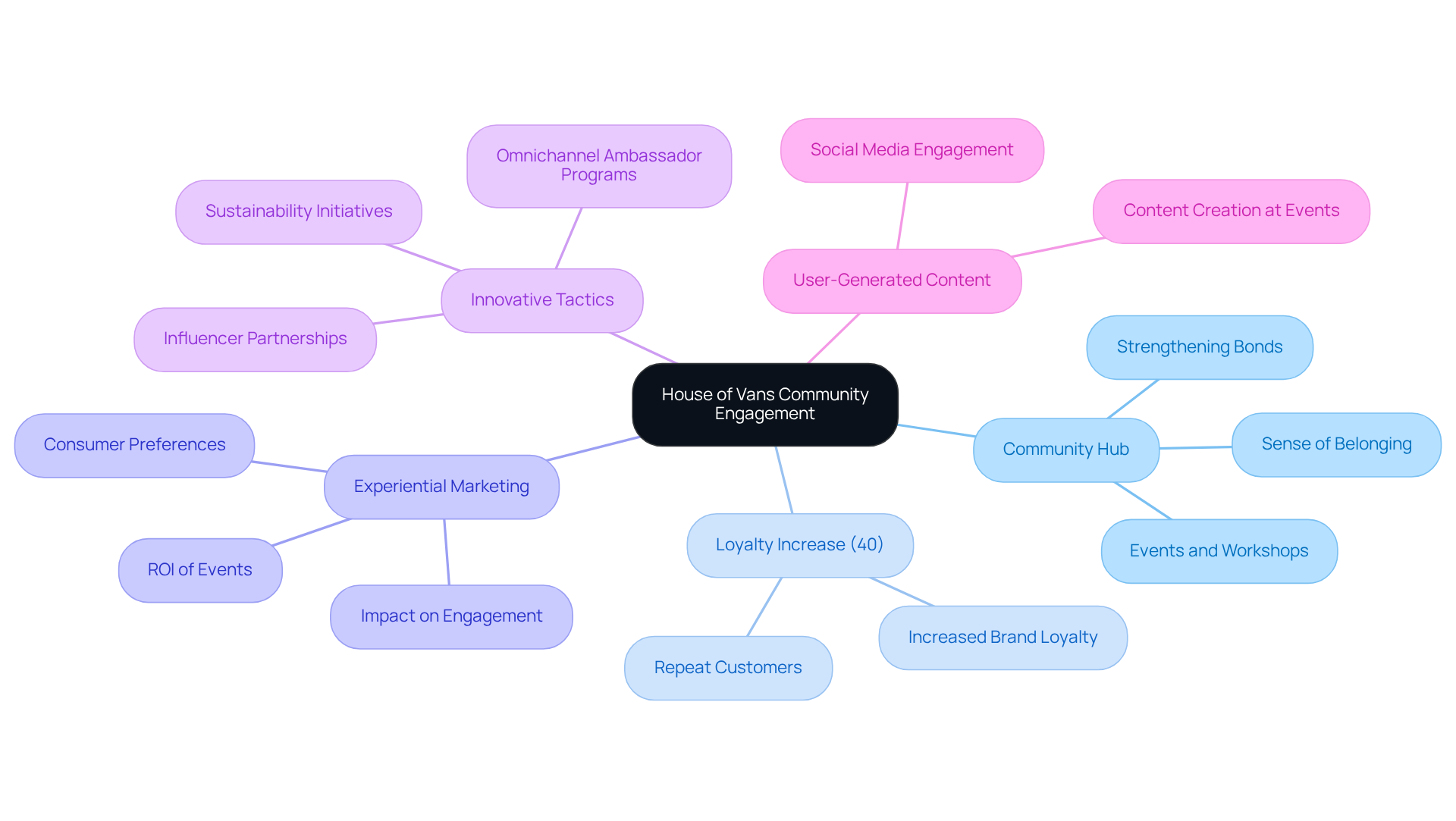
Coca-Cola: FIFA World Cup VR Experience Delivers Immersive Fan Engagement
Coca-Cola recognized a challenge in fan engagement during the FIFA World Cup, a time when excitement and connection are paramount. Fans often feel a longing to truly immerse themselves in the thrill of the tournament, and this emotional gap can diminish their experience. In response, Coca-Cola developed a that allowed fans to dive deep into the heart of the action, creating unforgettable moments and . This innovative approach not only but also reinforced , a bond that has flourished since 1974 when they became a corporate partner of FIFA.
By leveraging , Coca-Cola showcased the power of in engaging audiences during significant events. As Chris Milk beautifully expressed, 'the beauty of virtual reality is in creating and sharing collaborative realities,' which underscores the potential of such . The campaign also included , inviting fans to engage with a digital version of Swiss footballer Xherdan Shaqiri, vividly illustrating the immersive nature of the initiative.
Looking ahead, with predictions that virtual reality gatherings will soon feel indistinguishable from physical presence, Coca-Cola's success highlights the in sports promotion. As brands continue to seek innovative ways to enhance audience engagement and strengthen their associations, the effectiveness of experiential marketing strategies will be crucial in the competitive marketing landscape of 2025.
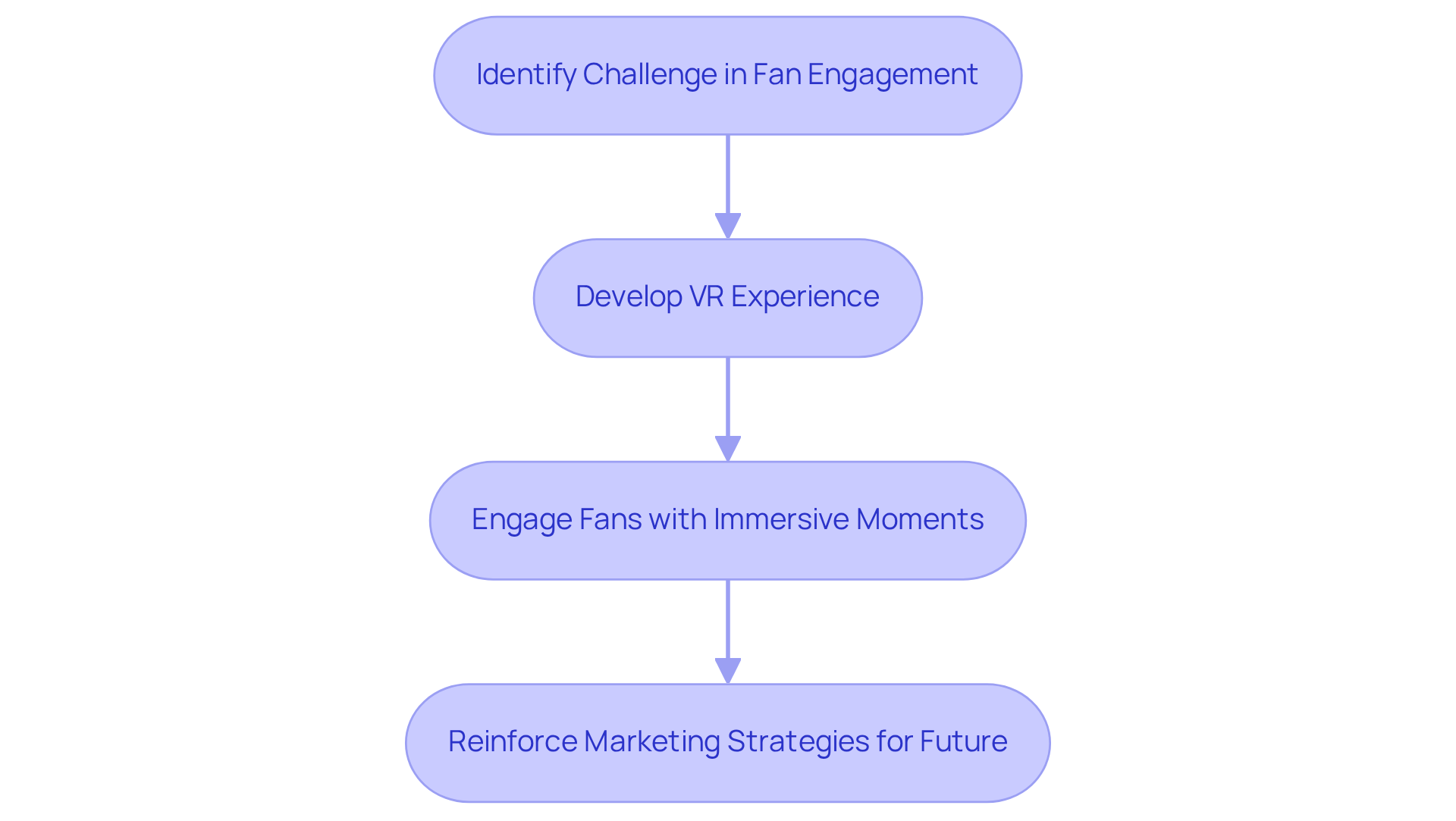
Conclusion
Experiential marketing has become an essential strategy for brands aiming to build genuine connections with their audiences. The challenge lies in prioritizing meaningful interactions and emotional engagement, which can lead to unforgettable experiences that resonate on a deeper level with consumers. As illustrated by various case studies, the transformative potential of experiential marketing is evident in its capacity to intertwine storytelling, community involvement, and innovative technology, ultimately nurturing loyalty and trust.
Key insights reveal how brands like Warner Bros, Red Bull, and Coca-Cola have effectively embraced experiential marketing to boost engagement. Interactive campaigns, such as the Barbie movie selfie generator, alongside immersive events like Red Bull's Stratos campaign, showcase the power of connecting with audiences personally. Additionally, initiatives like Lean Cuisine's #WeighThis campaign and M&M's Flavor Rooms highlight the significance of addressing societal issues and consumer preferences, underscoring the necessity for brands to remain responsive and authentic.
As brands navigate the ever-changing landscape of 2025, embracing experiential marketing will be vital for maintaining relevance and fostering community connections. Companies are encouraged to explore innovative approaches that resonate with their target audiences, using the insights shared in this article as a foundation for crafting impactful marketing strategies. By prioritizing genuine engagement and emotional resonance, brands can enhance their visibility while cultivating lasting relationships with consumers in a competitive market.
Frequently Asked Questions
What is experiential marketing and why is it important for modern brands?
Experiential marketing is a strategy that focuses on creating meaningful and engaging interactions between brands and consumers. It is important for modern brands as it helps forge genuine connections, enhances customer loyalty, and fosters emotional resonance, allowing companies to engage audiences in ways that truly matter.
How does RNO1 utilize storytelling in experiential marketing?
RNO1 leverages storytelling by integrating personal narratives into experiential marketing strategies, which can lead to significant results, such as a 30% revenue increase for campaigns centered around these stories. This approach helps brands connect on a personal level with consumers, strengthening loyalty and involvement.
What role does user-generated content (UGC) play in experiential marketing?
UGC plays a crucial role in experiential marketing by inviting consumers to participate actively in promotional campaigns, enhancing brand visibility and trust. It influences 79% of consumers' buying decisions and can lead to a 50% increase in engagement when incorporated into social initiatives.
Can you provide an example of a successful experiential marketing campaign?
One notable example is Red Bull's Stratos campaign, which featured Felix Baumgartner's skydive from the edge of space. This campaign not only engaged millions globally but also reinforced Red Bull's brand identity in extreme sports, resulting in 85% of buyers being more likely to support brands involved in experiential marketing.
What are the benefits of using advanced digital platforms in experiential marketing?
Advanced digital platforms enhance experiential marketing by providing innovative ways to engage audiences. As companies navigate the competitive landscape of 2025, embracing these platforms can help maintain customer loyalty and create memorable experiences that resonate deeply with consumers.
How does the Barbie movie selfie generator exemplify experiential marketing?
The Barbie movie selfie generator allows fans to create personalized content for social media, transforming viewers into advocates for the film. This interactive tool nurtures creative engagement and significantly boosts the film's visibility through user-generated content, showcasing the effectiveness of experiential marketing in the film industry.




